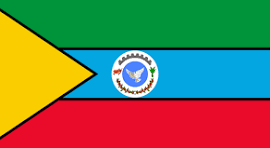Table of Contents
RH 1 : Human Resources Management and Capacity Development Plan
Objectives of the Procedure
This procedure aims to establish a structured framework for human resources management within the PROCEED program. It is designed to ensure the effective allocation, monitoring, and continuous development of staff to support the successful implementation of program activities
Allocation and Management of Human Resources
Objectives
- Define roles and responsibilities for the recruitment, appointment, and assignment of staff within the program.
- Ensure that all positions are filled with qualified individuals in accordance with program needs.
- Establish clear reporting lines and responsibilities while maintaining the existing hierarchical structure of government institutions.
Responsibilities
- RTF Coordinators (Technical Bureaus – Water and Agriculture): ensure that all positions required for the PROCEED program within their respective sectors are filled by individuals with the relevant experience and qualifications. They must alert the Task Force and Steering Committees if positions remain unfilled or if appointed staff do not meet the expected qualifications or experience.
- Local Institutions (Region, Zone, Woreda): in coordination with the Technical and Administrative Assistances, local institutions are responsible for jointly defining human resource requirements and appointing staff for the PROCEED program. This must be done in alignment with the activities planned for their respective territories and based on the requirements set by the RTF and the Assistances.
- Technical Assistance: supports the identification of HR needs by defining staffing requirements per role and associated competencies (i.e. number of Kebeles monitored per Woreda expert). It also oversees the implementation of the continuous capacity development plan.
- Administrative Assistance: provides support for assessing HR needs and evaluating staff, particularly those involved in administrative and financial functions.
Human Resources in the PROCEED Program
The PROCEED program relies on existing staff within regional technical and administrative offices, zonal departments, and Woreda and Kebele offices. No additional recruitment is carried out specifically for the programme. Instead, staff members are assigned to PROCEED activities according to identified needs and predefined job profiles.
Staff appointment
Each staff member assigned to the PROCEED program must have a formal Assignment Description, outlining:
- The primary objective of the assignment
- Key tasks and responsibilities
- Hierarchical and functional reporting lines
- Required competencies
Annex Annex RH1 – A1 provides a comprehensive list of functions and corresponding tasks.
The RTF Coordinator, with support from the Technical Assistance, is responsible for:
- Reviewing HR needs and establishing allocation rules based on activity volume
- Maintaining and updating Assignment Descriptions, including defining performance indicators for evaluation and incentive-based recognition
- Planning and overseeing the work of staff mobilised under the PROCEED program in accordance with the activity plan
Each Local Institution (Region, Zone, Woreda, Kebele) must formally appoint the required staff and issue an official letter to the RTF Coordinator, specifying the names and qualifications of the assigned personnel. A consolidated list of all appointed staff must be maintained and regularly updated by the RTF Coordinator in each technical bureau.
All appointed staff must be formally informed of their specific roles and responsibilities within the PROCEED program by their hierarchical superior, based on the Assignment Description.
To ensure staff members can effectively fulfil their duties, they shall benefit from continuous capacity development, aligned with the program’s objectives.
The RTF Coordinator, in collaboration with the Administrative Assistance team, is responsible for verifying that all positions are filled with qualified personnel. Additionally, they must ensure compliance with safety and security standards as defined in the Sustainability Framework (Annexe Annex GOV3 – A1).
Management and Resources for Assigned Staff – general principles
The PROCEED program does not alter the existing hierarchical structure of government institutions. Each assigned staff member remains under the supervision of their current hierarchical superior. Therefore, it is essential that all supervisors of PROCEED program’s affiliated staff understand and support the program’s overarching objectives. The Task Force is responsible for ensuring that government officials at all levels have this awareness.
However, the PROCEED program introduces collaborative platforms to facilitate decision-making and activity management:
- Steering Committees validate and approve staff appointments for the program.
- Task Forces oversee operations, with Task Force members responsible for coaching, training, and providing technical guidance to experts involved in the PROCEED program.
The roles and responsibilities of institutional actors in the technical implementation process are detailed in Annex WS-M2 and SWC-A15.
Financial support for field engagement
The PROCEED program covers transport and field-related costs for institutional actors involved in the program through two mechanisms:
- Performance-based support at the Woreda level: transport and field expenses are reimbursed only when pre-agreed monthly objectives and activities are successfully completed (as per the procedure in Annex WS-M2 and SWC-A15).
- Fixed top-up at the Zone and Region levels: a fixed monthly allowance is provided to cover expenses incurred by experts while carrying out the PROCEED program’s activities. This top-up is granted as long as the individual remains officially assigned and meets their responsibilities, as confirmed through the annual evaluation.
The rates for per diems and top-ups are established at the beginning of the program (see Annex Annex ADM3 – A3) and are adjusted in accordance with the guidelines specified in Annex Annex ADM2 – A6.
Monitoring and evaluation of staff
Objective
- Implement a structured monitoring system to track staff engagement and performance through regular reporting and evaluation processes.
- Conduct annual performance reviews to assess individual contributions, identify challenges, and define objectives for continuous improvement.
- Establish mechanisms for addressing conflicts or staff-related issues, including a formal grievance system to allow staff to report concerns or difficulties.
Process
Field staff engagement is monitored on a continuous basis through monthly reports, which provide documented evidence of activities and commitment. These reports are reviewed and sampled by the regional and zonal focal persons, with the support from the Technical Assistance. Monthly monitoring is based on individual activity plans and reports. It is the framework for evidence-based incentive related to the PROCEED program.
Once a year, the RTF or ZTF coordinators organise, with the support of both assistances, the evaluation of performance of every staff involved in PROCEED program as per the PROCEED Assignment, through an interview, by his/her hierarchical and technical superior. The interview covers the following:
- Assessment of individual performance,
- The staff’s opinion on challenges encountered and strengths related to their assignment,
- Objectives and expectations for the coming year,
- Identification of needs for continued capacity development.
In the event of conflicts or issues involving staff members, the hierarchical supervisor, or the Administrative or Technical assistance, may initiate a dedicated meeting to address the concern.
In addition, a formal grievance and feedback mechanism must be put in place to allow staff members to safely report any concerns, difficulties, or complaints related to their working conditions or interactions. This system should ensure confidentiality, accountability, and appropriate follow-up, in line with best practices for staff well-being and organisational transparency.
Capacity Development Plan
Objective
- Provide a structured approach for enhancing technical, managerial, administrative, and organisational skills among program staff.
- Facilitate ongoing training, coaching, and knowledge-sharing initiatives to strengthen institutional capacities.
- Ensure that capacity-building activities are aligned with the program’s long-term objectives and sustainability principles.
Approach
Capacity development is a central component of the PROCEED program, aimed at strengthening the ability of local stakeholders to implement and manage activities effectively, with a strong attention on sustainability and long-term impact. It encompasses the development of technical, managerial, administrative and organisational skills, as well as the integration of a sustainability mindset into everyday practice and decision-making.
This process is not limited to formal training. It is grounded in learning by doing, peer exchange, mentorship, and continuous support from experienced Technical Assistance and Administrative Assistance. Through active engagement in field activities, knowledge sharing, and adapted coaching, stakeholders are progressively equipped with the skills and tools needed to respond to local challenges and comply with national regulations and international standards for sustainable development.
The Capacity Development Plan (Annex Annex RH1 – A2) defines the key areas of competence that the PROCEED program aims to strengthen. This plan will evolve over time, depending on the needs and opportunities identified at local or regional levels.
Core areas of capacity development include:
- Technical skills (i.e. SWC techniques, design of water points, monitoring tools, data management)
- Managerial and organisational skills (i.e. project planning, resource allocation, internal coordination)
- Administrative competencies (i.e. financial reporting, procurement procedures, compliance with national regulations)
- Strategic thinking and sustainability integration (i.e. long-term planning, cross-sectoral coordination, adaptive management)
Procedure for implementation
The Regional and Zonal Task Forces (RTF and ZTF), with the support of the Technical and Administrative Assistance teams, are responsible for implementing capacity development activities as defined in the Capacity Development Plan. This includes:
- Organising training sessions, workshops, and field coaching aligned with identified needs
- Facilitating knowledge exchange and learning opportunities between peers and with external actors
- Monitoring the implementation and impact of capacity development activities
Capacity development is understood as a dynamic process. Therefore, additional activities may be organised in response to emerging needs, even if they are not explicitly mentioned in the original plan.
Capacity Development Implementation and Monitoring Report
The Capacity Development Implementation and Monitoring Report is a formal document that tracks the implementation of capacity development activities over a given period. It provides a comprehensive overview of:
- Activities carried out
- Participation and feedback from beneficiaries
- Assessment of learning outcomes and impact on institutional practices
- Recommendations for future improvements
This report is submitted to the Steering Committees for review and approval. It serves as a basis for continuous improvement and ensures accountability and alignment with PROCEED program objectives. The monitoring of capacity development is included into the evaluation procedure (Annex GOV2).
Main outputs
- Updated table of personnel allocated to the PROCEED with their position and contact details for the technical domain in each region
- Capacity Development Implementation and Monitoring Report
- Minutes of staff members evaluations on their PROCEED assignment.

